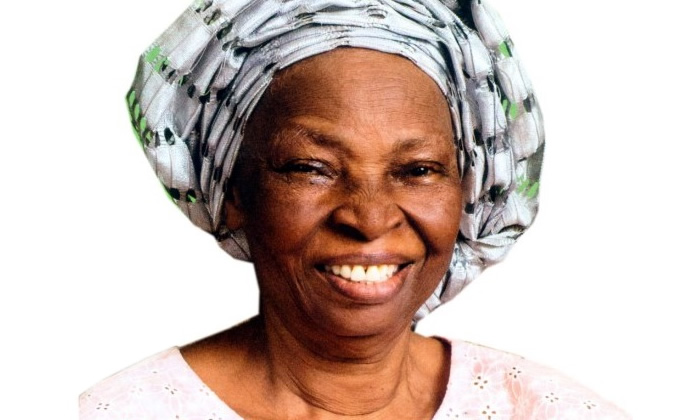In a candid interview, gospel legend Mrs. Deborah Fasoyin revealed she’s not the composer of “Odun Lo Sopin,” clarifying the song predates her 1979 recording.
“I must confess, even to this day, we don’t know who composed the song,” Fasoyin explained. “We only added two verses to it.”
Fasoyin’s admission may come as a surprise to many who have long associated her with the song. “Odun Lo Sopin” became a staple of year-end celebrations and is often linked with her powerful voice.
However, Fasoyin’s account sheds new light on its origin, emphasizing that the song existed long before her choir recorded it.
The song’s widespread popularity before Fasoyin’s recording
The singer noted that “Odun Lo Sopin” was widely known in the Christ Apostolic Church (CAC) community long before her choir’s official recording.
“There were many CAC churches in Ibadan. Back then, during year-end revival programmes, you would hear people singing ‘Odun Lo Sopin’ – meaning ‘the year is coming to an end.’ That chorus belongs to CAC. We only added two verses,” she emphasized.
In the interview conducted in Yoruba, Fasoyin highlighted the song’s widespread popularity before her choir formally recorded it. “We didn’t go to any mountain to pray to get the song. It was everywhere before we recorded it,” she reiterated.
Fasoyin’s choir, the Christ Apostolic Church’s Good Women Choir, had an important role in popularizing the song, but they were not the creators.
Fasoyin explained that they simply contributed additional verses, giving the song a fuller structure. The chorus, however, had already become a part of the cultural fabric of the CAC community.
The song “Odun Lo Sopin” has roots in the spiritual fervor of CAC revivals, particularly during the end-of-year period when believers gathered for prayer, thanksgiving, and reflection.
The communal nature of these gatherings led to the song’s rise, as it became a way to mark the closing of one year and the anticipation of the next.
Support from online c ommentators
In a 2020 interview with Sunday Scoop, Fasoyin spoke about translating the song into other Nigerian languages and its enduring impact.
However, despite her repeated acknowledgments over the years, many continue to associate her with the composition of “Odun Lo Sopin.”
![The Audio CD cover of "Odun Lo Sopin" led by Mrs. Deborah Fasoyin with the CAC Goodwomen Association in 1973
[Photo Credit: Google]](https://newdailyprime.news/wp-content/uploads/2025/01/OIP-9.jpeg)
[Photo Credit: Google]
Online commentators have backed Fasoyin’s account, some recalling that the song had been sung as early as 1975. Her honesty has earned widespread praise, with fans commending her for maintaining transparency.
The revelation has sparked discussions and debates, with many acknowledging her humility and willingness to set the record straight. Fans who have long admired Fasoyin’s contribution to Nigerian gospel music have praised her for her transparency and integrity.
Continued popularity of “Odun Lo Sopin”
“Odun Lo Sopin,” popularized by Fasoyin and her choir, remains a staple in year-end gatherings, evoking prayers for divine protection, guidance, and provision as the year comes to a close.
The enduring relevance and spiritual resonance of the song have cemented its place in the hearts of many, making it a cherished tradition that transcends generations.
Whether sung in Yoruba, Hausa, or Igbo, “Odun Lo Sopin” continues to serve as a unifying force, bringing people together to reflect on the past year and seek blessings for the year ahead.
Fasoyin’s admission about the song’s origins might have surprised some, but it has also reinforced the song’s legacy. “Odun Lo Sopin” is more than just a song—it’s a symbol of faith, hope, and unity for many Nigerians.
Fasoyin’s humility in acknowledging her role in popularizing the song, rather than composing it, has further elevated the song’s cultural significance.
However, Mrs. Deborah Fasoyin’s revelation clarifies the song’s true origins but doesn’t diminish its spiritual and cultural impact. “Odun Lo Sopin” continues to resonate deeply with Nigerians, reminding them of the importance of unity, gratitude, and hope as they transition from one year to the next.
Read Also: Legendary actor, Denzel Washington becomes gospel minister
Tope Alabi Launches Reality Show to Mentor Emerging Artistes



